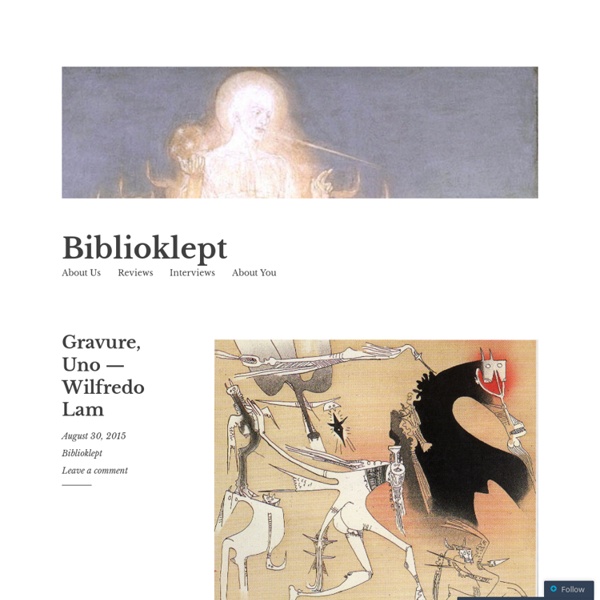Biblioklept

Olfactics | The exploration of olfaction through words
Laughing Squid
The Pen Addict
ADRIAN TOMINE
HOLO
The thrill of wrapping up! As HOLO 2 nears completion, a world of detail falls into place. Excited yet? Here are ten (more) reasons why we are. Learn more about the making of HOLO 2. By publishing (and many other) standards, HOLO just took its first steps. Drawing on his expansive knowledge of the history of representation, artist and scholar Pablo Garcia ruminates on the significance of the selfie in response to the ‘New Perspectives’ theme of HOLO 1’s PERSPECTIVE section. With HOLO 1 being in the world for a little more than two months, the conversations about the first issue of CAN’s 226-page magazine are beginning to shift. After more than a year of work, CAN’s print-spin off is now headed around the world! 226 pages, 34 contributors from 8 different countries, 12 months of blood, sweat and tears – the first issue of HOLO magazine, CAN’s exciting print spin-off that is “more a book than a magazine,” is near. What if CAN was a magazine?
www.mnftiu.cc | David Rees and his various projects
We Make Money Not Art
Fragrances of the World
Karol Palka
Pee-wee's blog - By me, Pee-wee Herman
Related:
Related:



